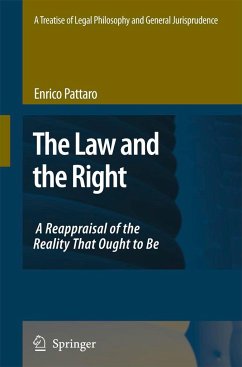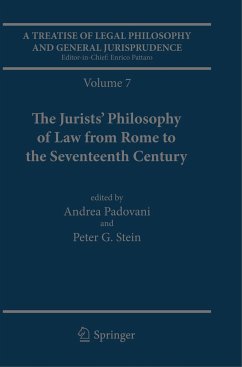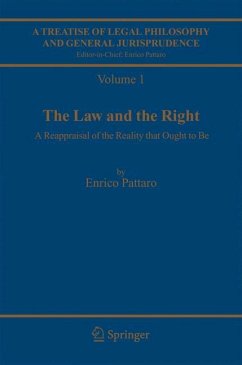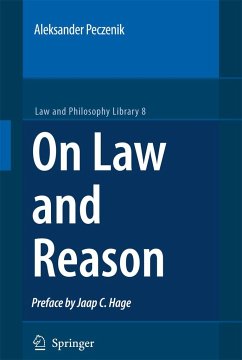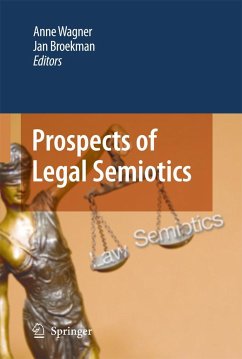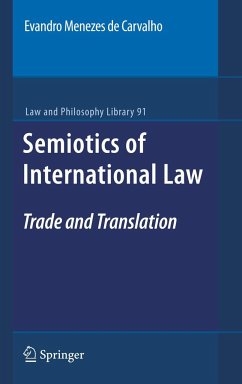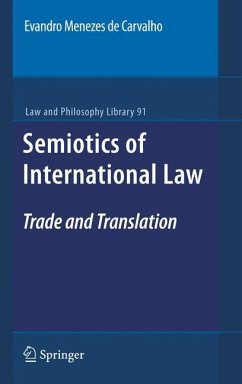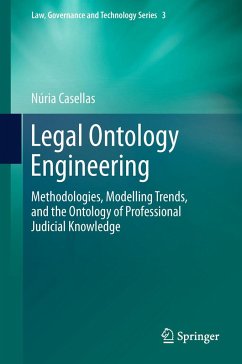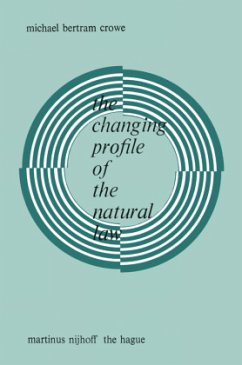
Law as Symbolic Form
Ernst Cassirer and the Anthropocentric View of Law

PAYBACK Punkte
68 °P sammeln!
Jurisprudence, according to Cassirer, is not merely the systematic, conceptual pursuance of ethics. They are separate domains for Cassirer, and both direct their claims differently on the individual. Whereas ethics concerns the motives of the individual, law ultimately achieves a cosmos for our world of outward actions. However, they are not separated by a neutral line or a vacuum. For law to have effect as a symbolic form it is necessary that it reflects the law in the mind of people i.e., that one could and ought to have assented to it out of ethical principles and maxims. The conceptual ana...
Jurisprudence, according to Cassirer, is not merely the systematic, conceptual pursuance of ethics. They are separate domains for Cassirer, and both direct their claims differently on the individual. Whereas ethics concerns the motives of the individual, law ultimately achieves a cosmos for our world of outward actions. However, they are not separated by a neutral line or a vacuum. For law to have effect as a symbolic form it is necessary that it reflects the law in the mind of people i.e., that one could and ought to have assented to it out of ethical principles and maxims. The conceptual analysis of law goes hand to hand with its genetic account. Both ethics and law are products of, spring forth from the formative or symbolic powers of man, and although, as any other symbolism, they might confront us as something objective, i.e., as part of reality that is beyond our immediate reach, ultimately we must always bring them to account to their very source: our independent and individual moral judgment. In this book we describe the rule of law as the reign of persuasion rather than the reign of force, and democracy as the reign by persuasion rather than the reign by force.





